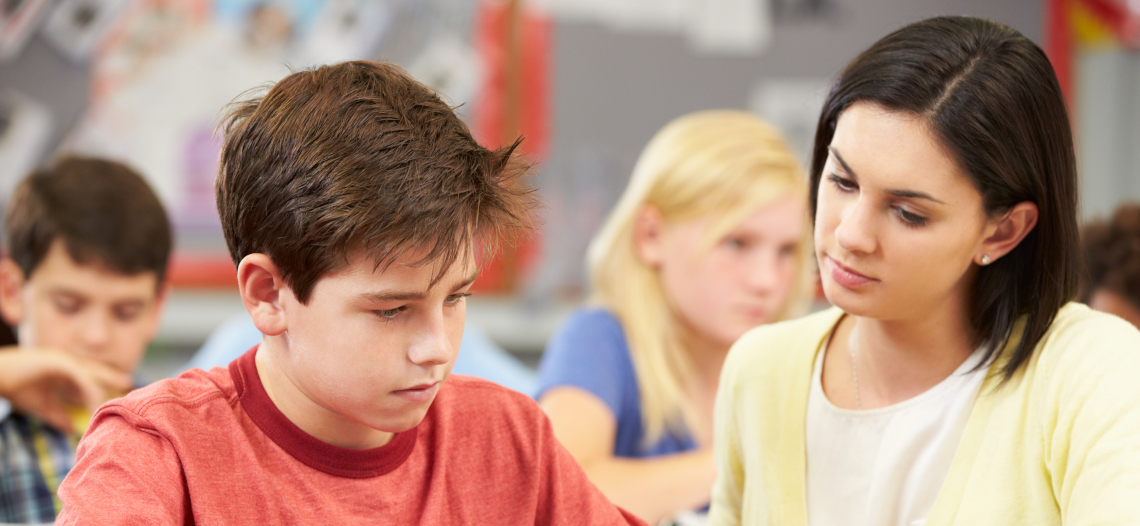In an era in which everyone is entitled to their own opinion, regardless of any level of expertise, an evidence-based approach relies on science to adopt adequate strategies and achieve the best results. When it comes to education, everyone seems to have an informed opinion.
As former students, we have our first-hand experience with the educational system, we know what worked for us and what didn’t, and we tend to believe that our solutions will do wonders for millions of kids. As parents, we see how our kids learn, we try to do the best we can to help them, and we think that whatever works for them will work for the entire classroom or even the entire school.
Read more: Why flipping the classroom just makes sense
Despite all our best intentions, personal experience or a genuine passion for education are not enough. Without proper research, it’s nearly impossible to find systemic solutions. Therefore, teachers, educators, and policymakers should rely on evidence-based educational strategies to achieve results across the system.
Read more: Practice vs. research in education? Why teachers need to do both
Let’s see five evidence-based educational strategies that have an impact!
1. Feedback
Consistent and adequate feedback from an empathetic teacher is indeed effective for all students. Constructive feedback that focuses on individual growth acknowledges the progress boosts self-esteem and motivates most students. With all edtech solutions available, teachers can give feedback online or develop their own feedback strategies. For instance, a mix of online-offline feedback might be less time-consuming for teachers who have many students.
Read more: The 5 Bs of online feedback teachers need to master
2. Teacher-student relations
Studies also show that the teacher-student relation is crucial during the learning process. We all remember teachers that have inspired us to do better and be the best. However, this kind of chemistry is unique, and it is very difficult (or even impossible) to replicate. The scalability of this strategy is very low. However, it does occur, as many gifted teachers in our schools have the chance to work with curious and dedicated students.
Read more: 6 Ways to build meaningful online teacher-student relationships
3. Metacognitive strategies
Teaching students how to learn and reflect upon their learning journey is also an effective measure in evidence-based education. Self-questioning (“What do I know about this topic?”; “How did I solve this problem in the past?”) is very useful in learning, as it helps students to reactivate previous knowledge and make use of all available resources. Reciprocal teaching (a student teaches a certain topic to a colleague) is also effective, as it allows students to see things from a different perspective and tackle problems from different angles.
4. Collaborative learning
As social beings, we learn from each other throughout our lives. In highly competitive educational systems, students are encouraged to be the best and see their colleagues as competitors. It may work for some, but there is also a downside to this approach: this method does not create team players. Students will need to collaborate in their professional lives, and it’s difficult to become a team player if you were raised to believe that colleagues are competitors. When students learn from one another, they become more self-confident and more reliable. With edtech solutions, collaborative learning can bring together students from all over the world, which is essentially what happens in any multinational company.
Read more: 4 Ways to promote collaboration in digital spaces
5. Accelerated learning (grade skipping)
For gifted students, grade skipping can be useful, as they can learn at their own pace. They get to expand their curiosity and be motivated by different challenges. Accelerated learning is effective and can help gifted students flourish. It’s a scalable solution, and it can be implemented across any educational system after careful testing and assessment. With proper edtech solutions, motivated learners can attend any class they want and expand their horizons regardless of the school they are enrolled in. Perhaps the uberization of learning might be the best solution for them.
Read more: The uberization of Higher Education: fad or fab?
Final thought
Daniel Patrick Moynihan, a politician, sociologist, and diplomat, famously said that
Everyone is entitled to his own opinion, but not to his own facts.
We can paraphrase this idea by saying that everyone is entitled to their own opinion about education, but not to their own facts. Only evidence-based interventions should be implemented across educational systems if we want systemic results.







